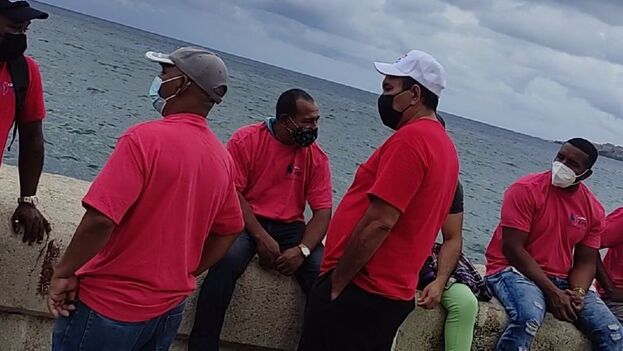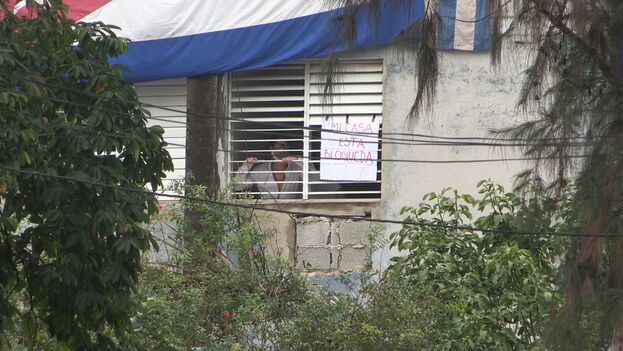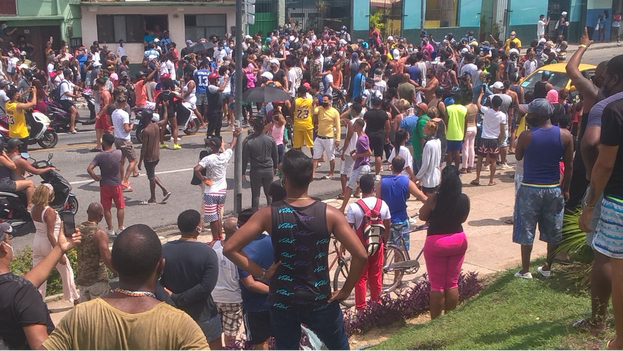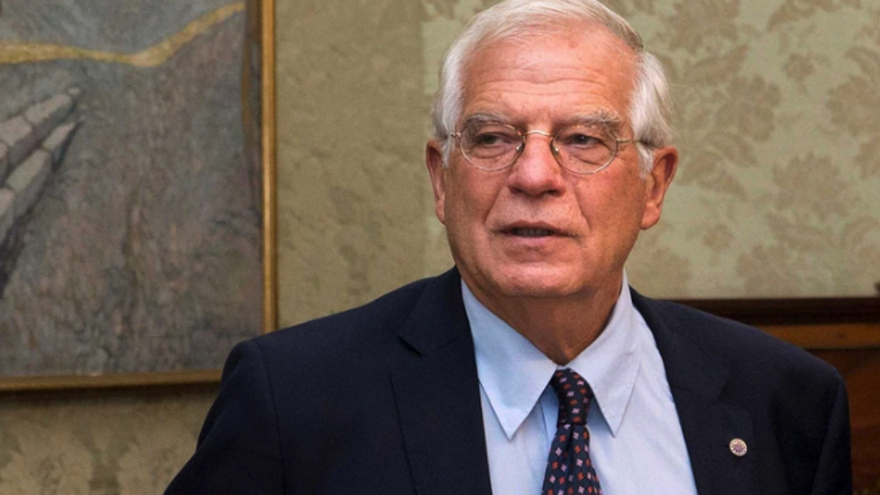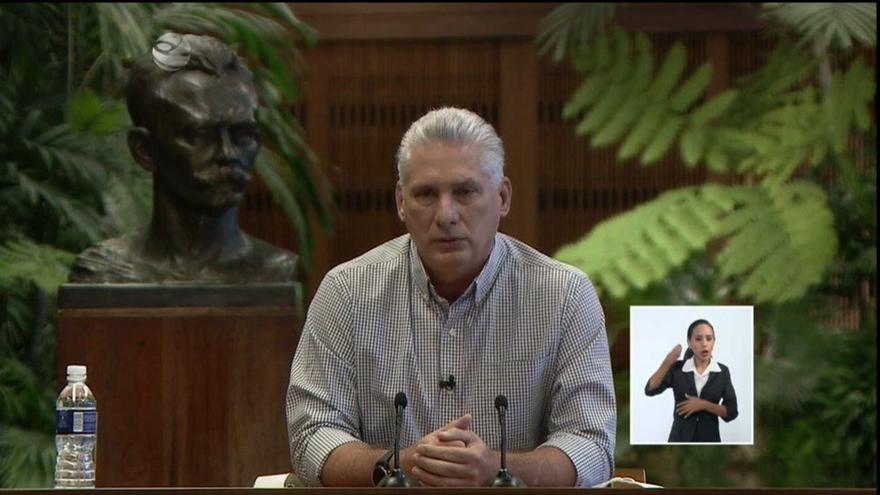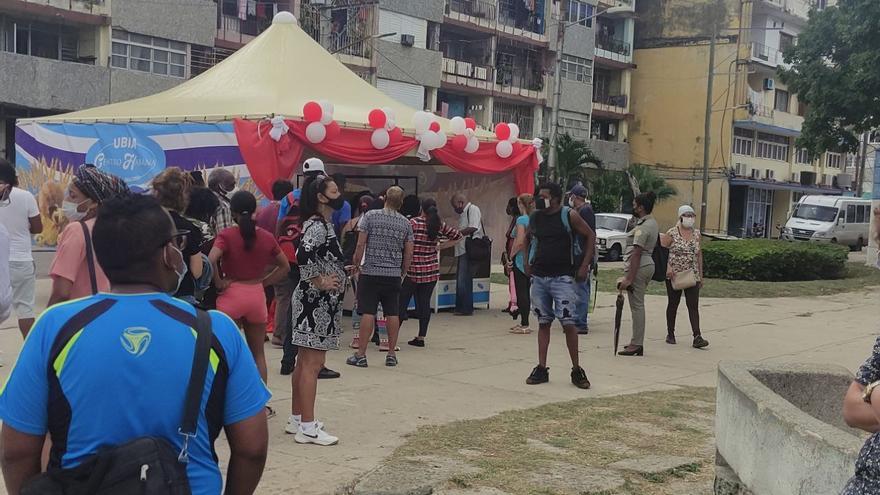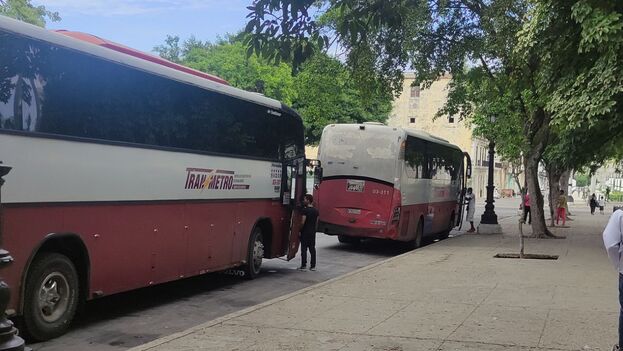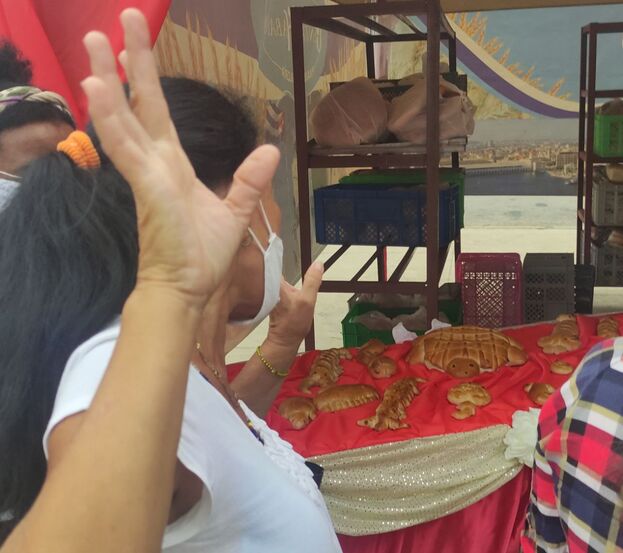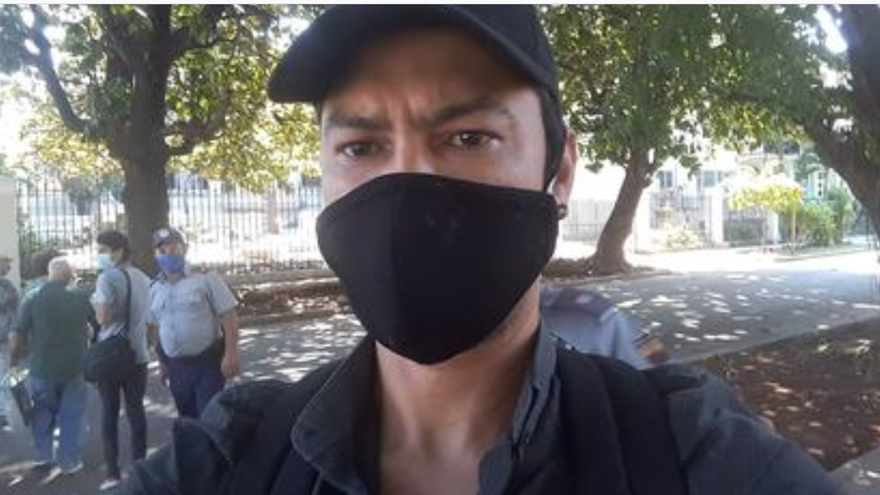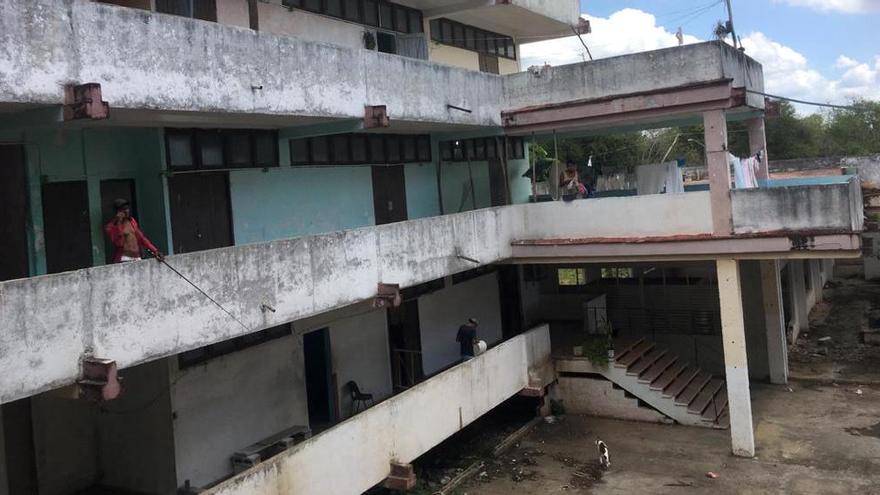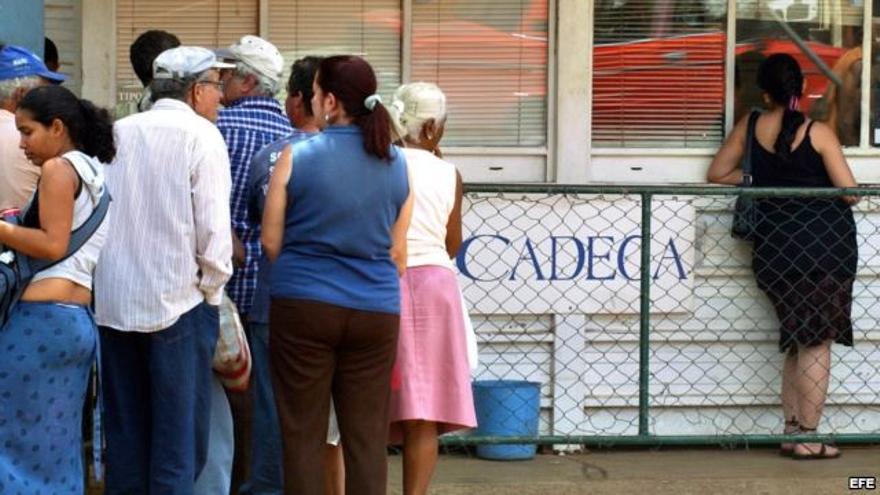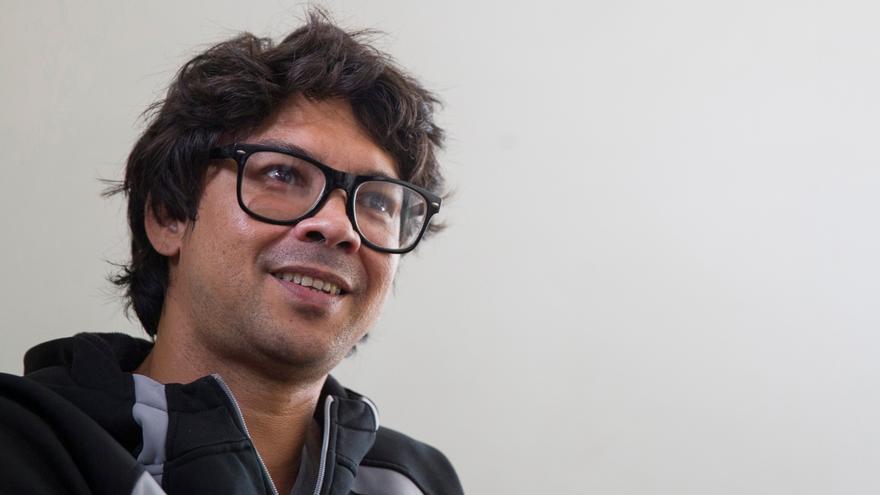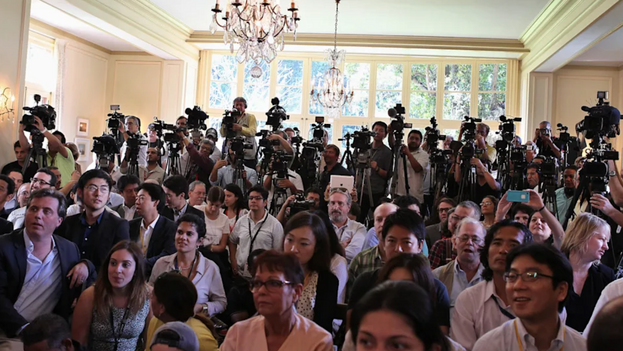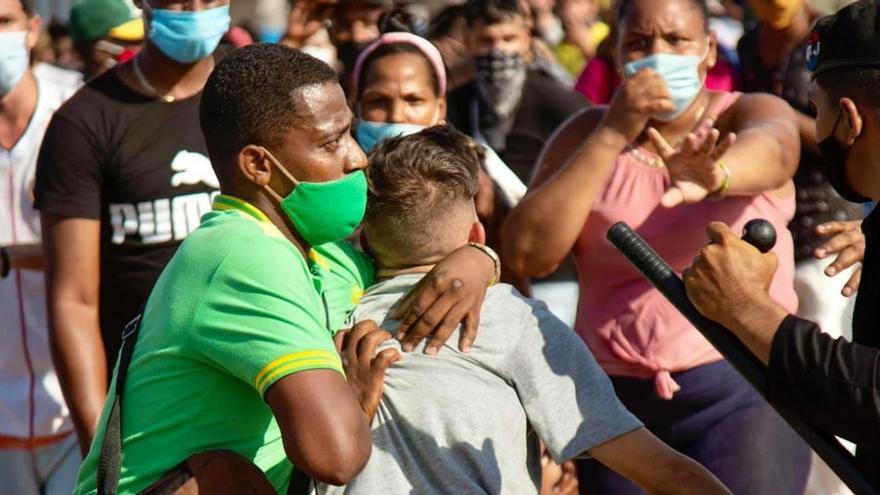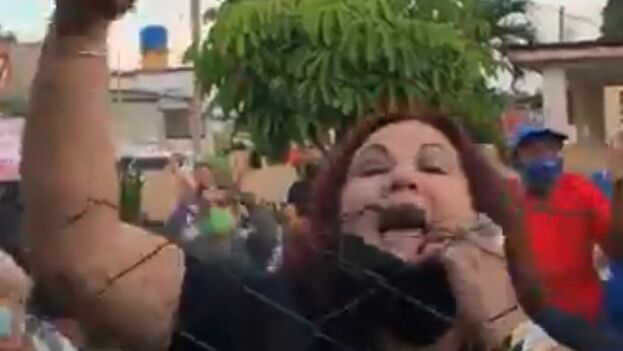
![]() 14ymedio, Havana, 15 November 2021 – Dawn had barely broken this 15th November in Cuba, the date set for the opposition’s Civic March for Change, when Saily González, a member of the Archipiélago platform — the conveners of the march — faced an act of repudiation already organized at front of the door of her home in Santa Clara.
14ymedio, Havana, 15 November 2021 – Dawn had barely broken this 15th November in Cuba, the date set for the opposition’s Civic March for Change, when Saily González, a member of the Archipiélago platform — the conveners of the march — faced an act of repudiation already organized at front of the door of her home in Santa Clara.
“Fifty henchmen at the service of the Cuban dictatorship at the door of my house from 5:30 am. I am still firm and with the intention of going out to demonstrate at 3:00 pm,” denounced the activist and former owner of the private Amarillo B&B.
A few hours later, González published a new video in which she is seen hanging out some white sheets at her house while receiving shouts, insults and boos from those who are still stationed in front of the house.
The journalist Mónica Baró has highlighted that along with the people gathered in front of González’s house, the flags of the Federation of Cuban Women (FMC) can be seen. “This means that the aggressors are in this way identifying themselves as members,” says the reporter, who now resides in Madrid, who then adds that the FMC receives funding from different international agencies of cooperation from countries that promote themselves as human rights defenders, and it also has the backing of agencies of the United Nations.
If these agencies do not speak out immediately, says Baró, “there is no room for doubt: they are participating in the violence.”
From El Vedado, in Havana, Carolina Barrero reports that about 100 people gathered at the ground floor of her building around eight in the morning. “They cut off the internet but I have my cellphone playing Patria y Vida [Homeland and Life] on the balcony,” the curator and art historian continue reading
Yahima Díaz Barrabes, from Consolación del Sur in Pinar del Río, was barely able to take her son to school. “It was his first day of the year and it was important that he go,” she explains to 14ymedio. “The state security officer who ‘attends’ me made it clear that I couldn’t do anything else, that I couldn’t go anywhere else because I have limited movement.” Díaz also has an “operation” of about 30 people in the vicinity of her home. “Some in front of my house, others on the side, in the background, so they are scattered, this deployment of security is something impressive, as if one were a criminal,” she laments.
This newspaper testifies to surveillance in all corners of Centro Habana, along San Lázaro, Galiano and Boulevard San Rafael, by both uniformed and plainclothes agents
In a first tour, this newspaper testifies to surveillance in all corners of Centro Habana, along San Lázaro, Galiano and Boulevard San Rafael, both by uniformed men and by plainclothes agents. In Galiano, the authorities installed platforms, presumably to offer performances. San Rafael cannot be accessed without showing an identity card. Also striking is the presence of officers guarding the lines in front of shops this Monday.
Santiago also woke up to at least a couple of police officers on every corner, according to 14ymedio’s correspondent in the eastern capital. On Avenida de las Américas, one of the main arteries of the city, in front of each bus stop there are a couple of agents. In the main intersections of the city there are also patrol cars and caballitos, police officers on motorcycles.
There are also Black Berets in Ferreiro Park and Garzón Avenue and, in addition, plainclothes agents in the main parks of the city that do not go unnoticed, since they are ‘in uniform’ on this day with a red T-shirt, a symbol from officialdom in opposition to the white clothes that the opposition has identified with the protests.
White flowers, also a symbol of the Civic March, were on sale as normal in state establishments, and also on an itinerant basis by women who offered them in plastic buckets.
For this Monday, demonstrations are expected to be called in several Cuban provinces starting at 3:00 in the afternoon, although the Government has already warned that the marches are prohibited and has threatened to arrest those who try to join, in addition to mobilizing its followers to try to defuse the protest.
At the request Josep Borrel, the European Union’s High Representative for Foreign Affairs and Security Policy, the diplomats of the European Union will be reporting what is happening today in Cuba and the United Nations is also monitoring the situation. The United States has warned of more sanctions on the Havana regime if it does not allow protesters to march and represses them with violence, although these measures are not expected to work as a deterrent to the government.
____________
COLLABORATE WITH OUR WORK: The 14ymedio team is committed to practicing serious journalism that reflects Cuba’s reality in all its depth. Thank you for joining us on this long journey. We invite you to continue supporting us by becoming a member of 14ymedio now. Together we can continue transforming journalism in Cuba.


